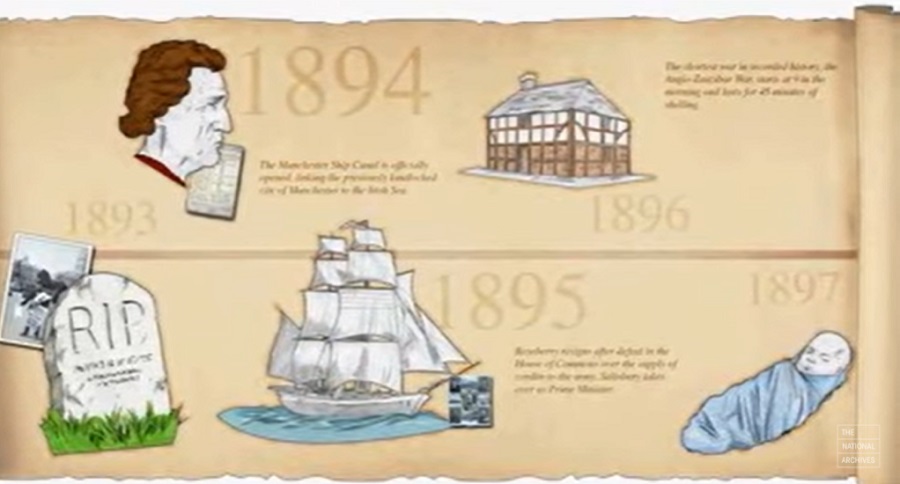Find out where to look when you first start your research, and how to assemble and organise your findings to get better results.
Transcript
The National Archives is home to 1,000 years of government records and information. The sheer range of publicly available documents that we hold is immense.
When carrying out research, preparation is everything. There are lots of places you can go and look. Libraries can be good places to start, as well as encyclopedias and articles on the internet. Has anyone already carried out research, or written a book, magazine or newspaper article on the subject? Can you ask friends or family, or talk to anyone locally who may know something that isn't written down anywhere?
Setting important dates on a timeline, and keeping key facts like names and places in a clear, easy-to-refer-to document or file will really pay off. The better you are at organising your findings, the easier it will be to find out more information and pinpoint areas to investigate further.
Think of yourself as a detective: following up clues, reading between the lines, trying to form a picture while there are still some of the pieces missing.
Researching can be fun, if frustrating sometimes. Organising your research and coming to our website armed with key facts will make the process much more productive.
So, enjoy the journey; you never know where it might lead.
More video guides
How the records are arranged
Understand how records are arranged to help save you time and make your research more productive.
Ordering documents
Find out how to copy, order and view the documents held by The National Archives and how to access popular records online.
Recording research results
Discover how to record all your results effectively so that you can find useful information again in the future.
